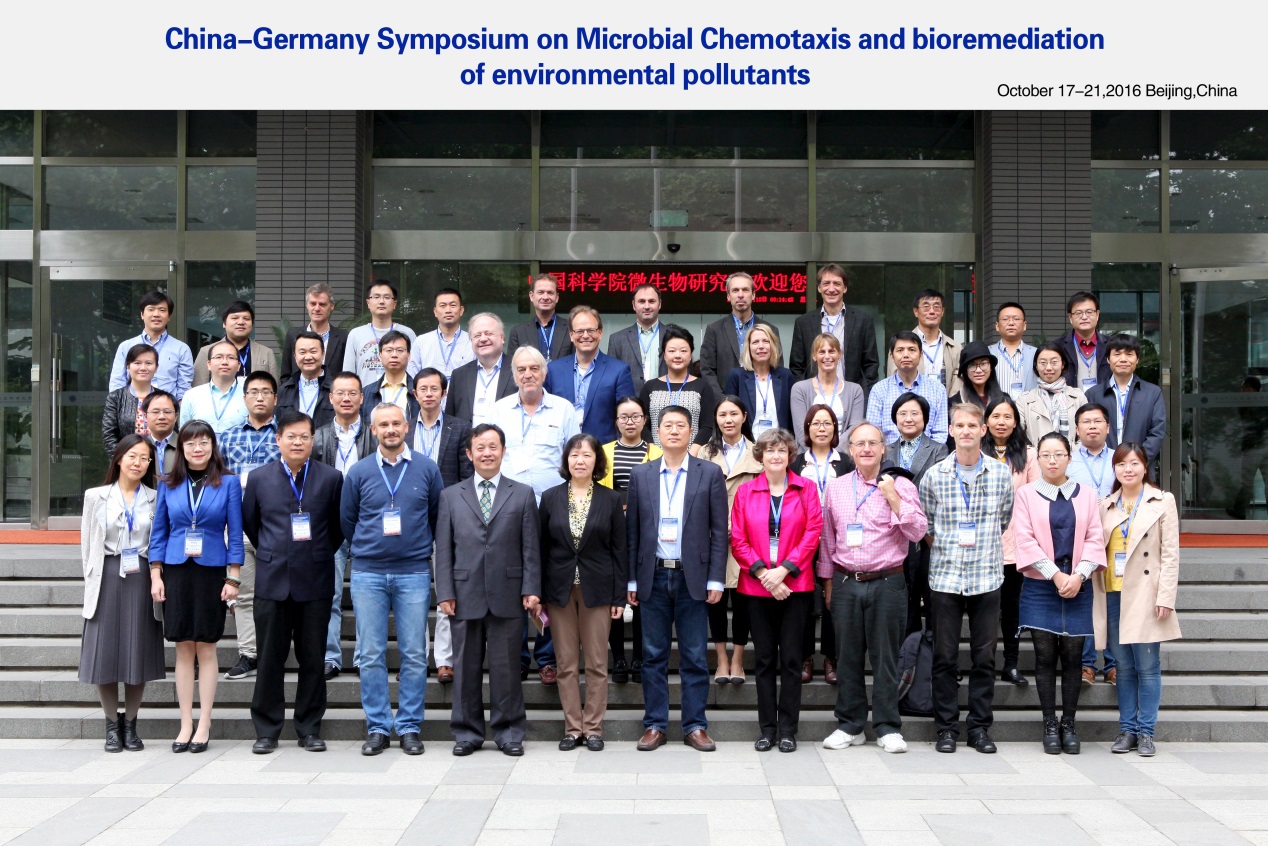The “China-Germany Symposium on Microbial chemotaxis and Bioremediation of Environmental Pollutants” was hosted on Oct. 17-21 at the Institute of Microbiology, Chinese Academy of Sciences (IMCAS) in Beijing, China.
Over forty invited speakers introduced their recent achievements and perspectives in various academic fields concerning “biosensing and chemotaxis”, “bioconversion and biodegradation”, “microbial community and processes”, and “biomonitoring and bioremediation”.
Moreover, scientists from China and Germany discussed further research on the degradation of pesticides, pharmaceuticals and other emerging organic pollutants. They also proposed preliminary cooperation intentions on international programs, students exchange, publication, etc. The successful convening of this symposium would provide constructive suggestions for solving some global issues, such as environmental protection and sustainable development.
This is the third time that Sino-German Center supported such symposium on microbes and environment. “We attach great importance in this research area. We hope Chinese and German scientists choose some interesting topics to discuss and finally to improve the research level of this field” said by Prof. CHEN Lesheng, executive deputy director of Sino-German Science Center of National Natural Science Foundation of China. The Center supported symposiums on microbes and environment respectively in 2004 and 2007.
This Sino-German symposium was hosted jointly by IMCAS, Max Planck Institute for Terrestrial Microbiology (MPITM) and Sino-German Center. Prof. LIU Shuang-Jiang from IMCAS and Dr. Victor Sourjik from MPITM, the organizers of the symposium, chaired the opening ceremony.
The speakers also visited the State Key Laboratory of Microbial Resources, China General Microbiological Culture Collection Center n, Information Network Center, Fungal Herbarium at the Institute.
